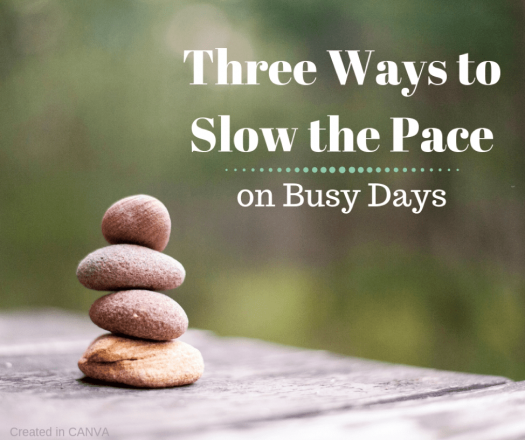Written by Alicia Cassels, MA
Have you ever felt as though your day was spinning out of control due to overwhelming demands on your time and energy? That your day was quickly disintegrating, and there was no way to stem the ensuing wave of anxiety long enough to take care of your priority tasks? It can difficult to make effective choices about how to get things done when in that state!
Unfortunately it’s not possible to add more hours to the day, but it is possible to increase your sense of calm and add a bit of balance to your day, making the way for more productive thinking about how to tackle priorities. Below are three strategies for quickly regaining a sense of balance on busy days.
1). Change Your Physical Location.
Have you ever walked through a doorway, and immediately forgot why you walked into the room? Researchers have documented how and why walking through a doorway tends to serve as a reset for memory (Radvansky, Krawietz & Tamplin, 2011).
Consider leveraging this “doorway effect” when your day feels like it is spinning out of control. Get up, leave the space you are in, and take advantage of different environmental lighting, color and temperature to give your mind a brief reprieve. As you move into a new space and your awareness of new surroundings is absorbed, allow your mental focus to shift away from stressful thoughts for a few moments. If you are inside, you might try stepping outside. Notice the color of the sunlight, the sound or feeling of raindrops falling. Pay attention to birds singing or traffic whizzing by before stepping back inside.
The brief break from stress may be just the reprieve you need, allowing you to calmly return to the task at hand with a clear mind.
2). Use a Different Part of Your Brain.
Even if you can’t move to a new location, shifting your mental frame can be accomplished through taking a moment to engage a different part of your brain.
One of my favorite pieces, a miniature sandbox on my work desk allows me to clear my mind by building small structures then pushing them over to make room for new thoughts. Blocks and puzzles can be similarly effective.
For more strategies for engaging different parts of the brain, view the webinar that Dr. Bara Litman, Psy.D., CEAP of Massachusetts Institute of Technology led in which she provided discussion of effective techniques she calls “mini’s” on YouTube : Rebalancing Work and Life: Be the Model
3). Engage in the Practice of Mindfulness.
Mindfulness has been shown through research to be an effective way to help individuals observe, rather than become carried away by a sense of stress and panic. Many excellent, meditation resources are available online.
This 7-minute Relax, Guided Meditation from MIT Medical is a great, free resource. MIT also has an excellent, free relaxation tip line, with a three-minute guided relaxation exercise you can use anytime, available free, 24 hours a day by telephone at 617-253-CALM (2256).
Reference:















